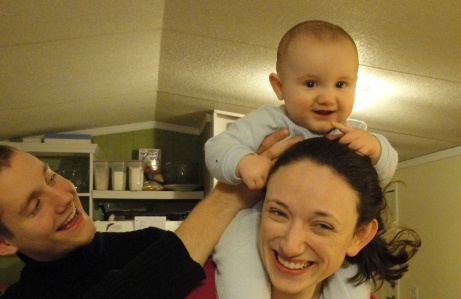“Parenting is demanding” (no. 79). I don’t know anyone who would disagree with this statement. In fact a typical response, even from an adolescent, would be, “No kidding!” As a parent (father), of many children, the word “demanding” often seems like an understatement. Parenting is not for the faint of heart, nor is marriage. Marriage and children are great gifts, and can bring untold joy, yet they do not come without their challenges. St. Francis de Sales wrote: “The state of marriage is one that requires more virtue and constancy than any other: it is a perpetual exercise of mortification.” Of course I do not want to dis-sway anyone from getting married and having children, but I think it is good to be aware before going into it. Before you get married, you should humbly recognize that you and your future spouse cannot make marriage work all on our own, but instead see that “with God all things are possible” (Mt 19:26). Christian marriage and family life is about being open to “God’s grace in daily life … even in the midst of fatigue and domestic chaos” (no. 79). It is indeed in those very moments, of the ordinary, mundane, little, and the seemingly insignificant circumstances of life, that we as parents are able to experience “divine love” in a way that is unparalleled.
My wife and I had two children, and greatly desired another. After several months of “trying,” we were elated with the wonderful news that my wife was pregnant. This elation was soon replaced with intense anxiety from numerous threats of miscarriage. My wife was put on bed rest for the first three months because that seemed to be the only way to maintain the pregnancy. It was a stressful time for me, balancing care for her and our two young boys, keeping the house relatively clean, and working full time. But all of this became grace-filled. Those months, and others like them, served as a constant reminder to me and my wife that, as St. Paul taught, “When I am weak, then I am strong” (2 Cor 12:10). I found myself often meditating on the preceding verse, “My grace is sufficient, my power is made perfect in weakness” (2 Cor 12:9). I knew that I could not do it on my own. As an imperfect parent I certainly “need help and strength from God, family, parish, and friends” (no. 80). My wife and I received this aid through great outpourings in the least expected ways, from meals to babysitting to—my favorite—friends who cleaned our home for us. These memories are treasures we share with our children and hope they pass on to theirs. How will you allow your domestic routine and life be “places were the Spirit shines through” (no. 80)?
Eventually my wife was taken off bed rest, the pregnancy progressed nicely and we were blessed with the birth of our third son—who had to be induced, somewhat ironically, two weeks past his due date.
About the author
Tim Roder is married and the father of six children. He is the Associate Director of the USCCB Secretariat of Laity, Marriage, Family Life and Youth serving the Subcommittee for the Promotion and Defense of Marriage. Tim holds a BA and MA in Catholic Theology and has work professionally for the Church for 20 years.
World Meeting of Families Catechesis Series
The USCCB Secretariat of Laity, Marriage, Family Life and Youth is excited about the World Meeting of Families (WMOF) being held in Philadelphia in September 2015. We are presenting a series of short articles focused on the WMOF Catechesis Love is our Mission: The Family Fully Alive and its implications for our daily lives. We will follow the timing suggested by the Archdiocese of Philadelphia by exploring one theme each month leading up to the World Meeting.
To see the rest of the monthly articles click here.











